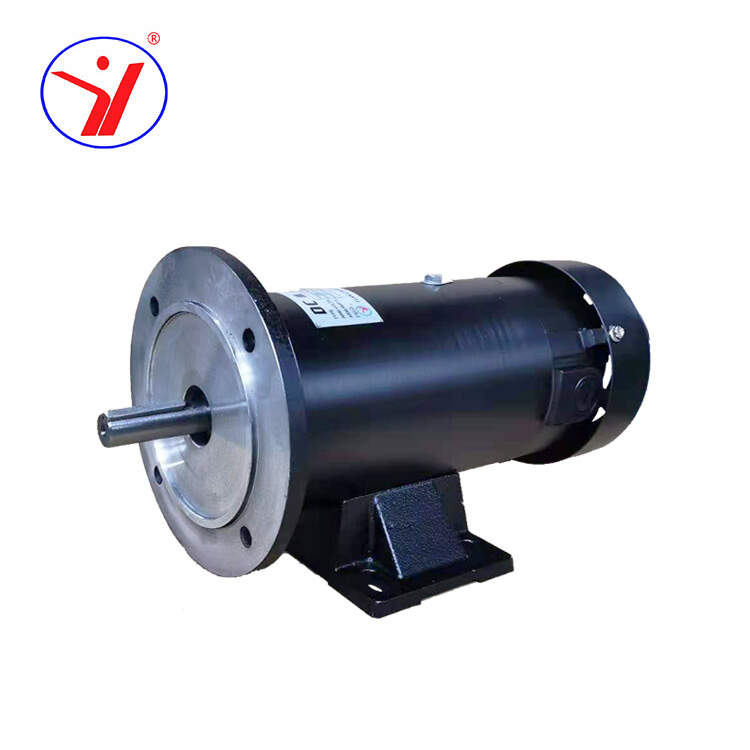How to Negotiate Price and Terms with DC Motor Suppliers in China Effectively
Struggling to negotiate price and terms with DC motor suppliers in China? In today's global marketplace, China has emerged as a leading manufacturing hub for a wide range of products, including DC motors. With its vast network of suppliers and competitive pricing, sourcing DC motors from China can be an attractive option for businesses worldwide. However, navigating the negotiation process with Chinese suppliers can be a daunting task, especially when it comes to securing favorable prices and terms. Effective negotiation skills are essential to ensure a mutually beneficial partnership and maximize cost savings.
Understanding the Chinese Negotiation Culture
Before engaging in negotiations with DC motor suppliers in China, it is crucial to understand the cultural nuances that shape the negotiation process. In Chinese business culture, building trust and establishing relationships (known as "guanxi") are highly valued. Chinese negotiators often prioritize long-term partnerships over short-term gains, and they may be more willing to compromise on certain terms if they perceive the potential for a strong, lasting relationship.
Patience and Persistence
Negotiations in China can be a lengthy and iterative process, requiring patience and persistence from both parties. Chinese suppliers may initially present higher prices or less favorable terms, leaving room for negotiation. It is essential to approach these initial offers with an open mind and be prepared to engage in multiple rounds of discussions to reach a mutually agreeable outcome.
Leveraging Market Knowledge and Competition
To strengthen your negotiating position, it is vital to have a comprehensive understanding of the DC motor market in China. Research and gather information on pricing trends, competing suppliers, and industry benchmarks. This knowledge will not only help you gauge the reasonableness of the offered prices and terms but also provide valuable leverage during negotiations.
Playing the Field
While it is essential to maintain a positive and respectful relationship with your primary supplier, it can be advantageous to explore alternative options. By engaging with multiple suppliers and presenting competitive quotes, you can create a sense of urgency and encourage your preferred supplier to offer more favorable terms to secure your business.
Building Long-Term Relationships
As mentioned earlier, Chinese suppliers often value long-term partnerships over short-term gains. Demonstrating a commitment to building a lasting relationship can be a powerful negotiation tactic. Consider offering incentives, such as larger order volumes or longer contract durations, in exchange for better pricing or terms. This approach not only benefits both parties but also fosters trust and strengthens the business relationship.
Emphasizing Mutual Benefits
Effective negotiation is not a zero-sum game; it should focus on finding a mutually beneficial agreement. Highlight the potential benefits for the supplier, such as increased sales volumes, long-term stability, and the opportunity to establish a strong presence in your target market. By demonstrating how the partnership can be advantageous for both parties, you can create a collaborative environment conducive to successful negotiations.
Leveraging Local Expertise
While it is possible to negotiate directly with Chinese suppliers, engaging the services of a local representative or agent can be invaluable. These professionals have in-depth knowledge of the local business culture, language, and negotiation strategies. They can act as intermediaries, facilitating communication and ensuring that both parties fully understand the terms and implications of the agreement.
Overcoming Language and Cultural Barriers
Language and cultural barriers can pose significant challenges during negotiations with Chinese suppliers. Misunderstandings or miscommunications can lead to misaligned expectations and potentially jeopardize the entire negotiation process. Local representatives or agents can help bridge these gaps, ensuring clear and effective communication between both parties.
Conclusion
Negotiating favorable prices and terms with DC motor suppliers in China requires a multifaceted approach that combines cultural awareness, market knowledge, relationship-building, and leveraging local expertise. By understanding the Chinese negotiation culture, conducting thorough market research, emphasizing long-term partnerships, and potentially engaging local representatives, businesses can navigate the negotiation process more effectively. Ultimately, successful negotiations with Chinese DC motor suppliers can lead to significant cost savings, reliable supply chains, and mutually beneficial long-term partnerships.



